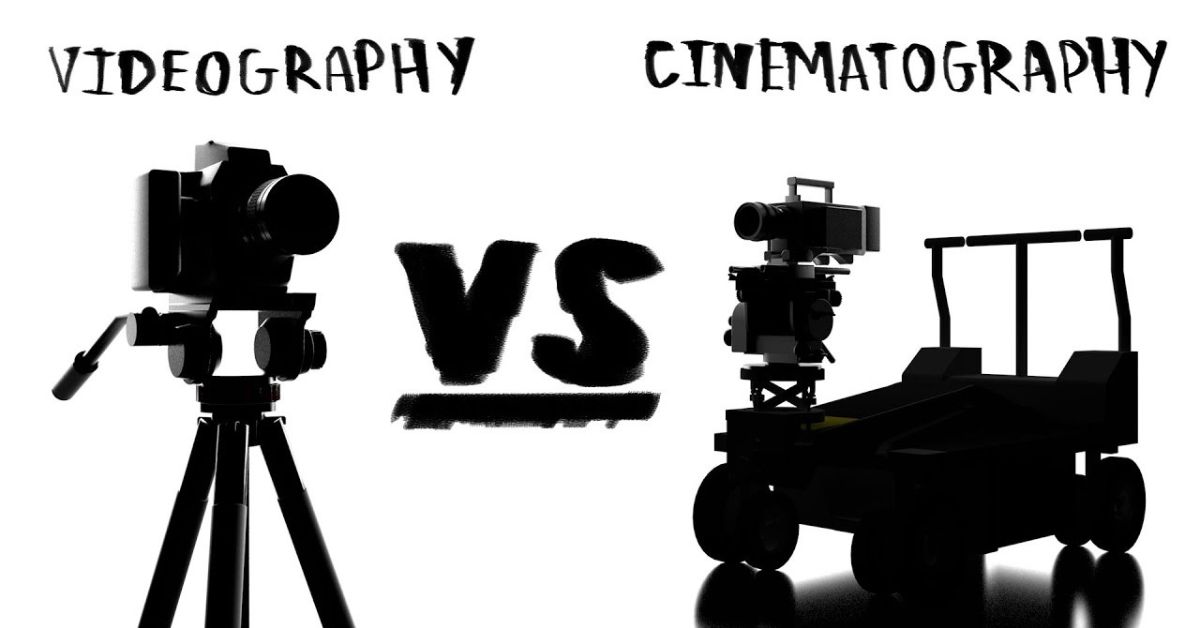A well-planned film production phase is a critical factor in the success of any cinematic project, whether it’s a blockbuster film, an exquisite documentary, or a corporate video.
It dictates the sequence of events, schedules, and resources required to bring a cinematic vision to life. However, at the heart of this timeline lies a fundamental distinction: the difference between cinematography vs videography.
Cinematography and videography are essential to visual storytelling, each with its distinct style and purpose. Cinematography leans towards artistic and cinematic filmmaking, emphasizing deliberate lighting, composition, and camera movement for emotional impact and aesthetic appeal.
In contrast, videography prioritizes efficiency and real-time event documentation, focusing on capturing occurrences without extensive creative expression.
In this expert guide, we’ll delve into the depths of the role of cinematography and videography in film production timelines; also, we explore their definitions and the significance of distinguishing between the two.
Cinematography
Cinematography is the art and science of capturing moving images in a visually compelling and artistic manner.
Often referred to as directors of photography, use professional equipment and various techniques to create specific visual impacts that enhance storytelling.
This approach is characterized by its focus on evoking emotions and moods through the careful manipulation of camera movements, composition, lighting, and shot selection.
In the context of cinematic vs video, cinematography emphasizes artistic expression and aims to provide a cinematic quality to the visuals, resulting in a more immersive and emotionally resonant experience for the audience.
It involves detail planning and artistic interpretation to create a distinct visual narrative, setting it apart from straightforward video recording.
Videography
Videography refers to the process of capturing live events or producing video content, typically using digital recording equipment. It involves recording real-time occurrences, such as weddings, documentaries, live performances, or corporate events.
Videographers are skilled professionals who specialize in recording and documenting events, often utilizing consumer-grade or prosumer equipment to ensure the faithful and accurate representation of the captured moments.
Within the dynamic video production scene in Washington, DC, videography is essential to the creation of a wide range of video material, from corporate films to event recorders.
With the support of a professional Washington DC video production company, videographers can capture and produce engaging visual narratives that effectively convey the essence of live events and stories.
Comparison: Cinematography vs Videography
Artistic vs. Documentary
The major difference between cinematographer vs videographer is that cinematography embraces an artistic approach, focusing on crafting visually stunning shots and evoking emotions through creative techniques.
Videography, in contrast, adopts a documentary style, prioritizing real-time documentation and accuracy in representing events.
Professional Equipment vs. Consumer-Grade
Cinematographers employ professional-grade equipment, including high-end cameras, lenses, and lighting setups, to achieve cinematic quality.
Videographers typically use consumer-grade or prosumer equipment, emphasizing ease of use and real-time capture.
Emotion and Storytelling vs. Live Documentation
Cinematographers (or directors of photography) are dedicated to enhancing storytelling through artistic visual interpretations, evoking emotions, and setting moods.
Videographers focus on real-time event capture, emphasizing authentic and unfiltered representation, with a primary goal of delivering a true-to-life account of events.
This distinction highlights the unique roles that create the most considerable difference between cinematographer vs videographer in visual storytelling.
Cinematic Quality vs. Realism
The result of cinematography is known for its cinematic quality, characterized by its artistic richness and visual impact.
Videography prioritizes realism, capturing events as they unfold with minimal post-production manipulation.
Key Difference: Filmography vs Cinematography
Filmography lists a person’s involvement in films, encompassing actors, directors, and other contributors, while cinematography is the art of creating visually compelling motion pictures through camera work and lighting. Cinematographers use professional equipment to achieve cinematic quality.
The terms filmographer vs videographer also differ. Filmographer is less common and suggests a multifaceted filmmaking role, possibly involving directing or producing.
They aim for cinematic excellence. Videographers capture video content with consumer-grade equipment, prioritizing practicality and efficiency over cinematic quality.
We have enlisted the comparison chart between Filmography vs Cinematography.
|
Aspect |
Filmography |
Cinematography |
|
Definition |
List of films associated with an
individual, often an actor or filmmaker, indicating their career contributions. |
Art and science of capturing
moving images, focusing on the artistic and technical aspects. |
|
Focus |
Highlights an individual’s film-related work and provides insights
into their career. |
Emphasizes the techniques and
artistry used in capturing moving images, including camera work, lighting, and composition. |
|
Application in Industry |
Commonly used to compile and
display the film-related work of actors, directors, and filmmakers. |
Plays a critical role in filmmaking,
where cinematographers shape the visual aspects of a film. |
Is Cinematic And Video Making Are Same?
No, Cinematic and video making are different. The debate around cinematic vs video highlights the evolving landscape of visual content creation, with a broader range of tools accessible to creators.
However, it’s essential to understand that while technology plays a role, the artistry, knowledge, and experience of a skilled cinematographer remain crucial for achieving true cinematic quality.
Therefore, the argument serves as a reminder that although technology gives artists more power, talent, and effort ultimately determine the quality of the finished product.
Is a Cinematographer a Better Career than Videography?
The choice between a career in cinematography and videography depends on individual preferences and career goals.
Cinematography is known for its focus on artistic storytelling, often in the context of film and television production, requiring high-end equipment and specialized training. It emphasizes creating emotionally engaging and visually striking content.
Videography, on the other hand, encompasses a broader range of video production work, including event videography, corporate videos, and online content.
It is more accessible for beginners and entrepreneurs as it often uses consumer-grade equipment and prioritizes real-time capture and efficiency.
The decision should consider personal interests, skills, and long-term career aspirations. Some may find the technical and artistic challenges of cinematography more fulfilling, while others may prefer the flexibility and business opportunities offered by videography.
Conclusion: Cinematography vs Videography
Visual storytellers may choose the best technique for their narrative and event capture by knowing the subtle differences between cinematography and videography.
Through visually striking interpretations that elicit strong emotional reactions, cinematography, which prioritizes creative expression, enhances the narrative.
With videography, on the other hand, viewers are provided with an accurate and immersive experience since it presents pure representations of events occurring in real time.
Acknowledging the distinct roles and techniques of filmographer vs videographer enables informed decision-making during the planning and execution of various visual projects.
Whether crafting a cinematic masterpiece or documenting live events, a grasp of the strengths inherent in each approach empowers storytellers to weave impactful visual narratives that deeply resonate with their audiences.

